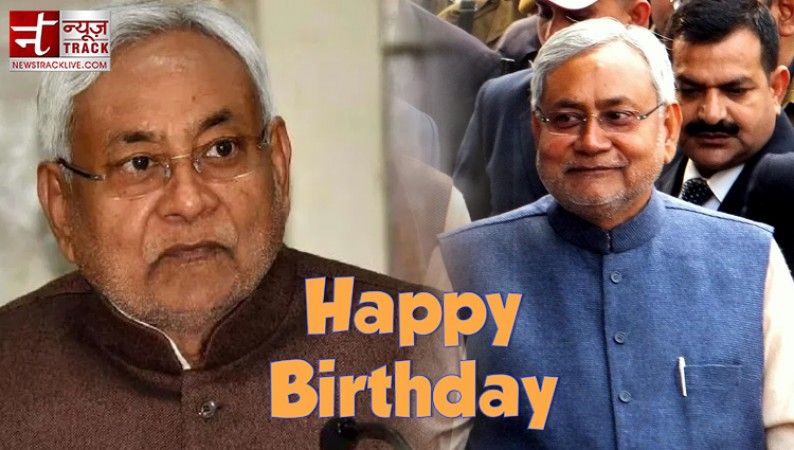
Nitish Kumar, the chief minister of Bihar and a prominent regional figure who is quite familiar with the corridors of power in New Delhi, was born on 1 March 1951. After taking part in the Independence movement, Kaviraj Singh, who was his father, later switched allegiance from the Congress to the Janata Party.
Before entering politics, Nitish completed an engineering degree and worked for the Bihar State Electricity Board. Midway through the 1970s, when he took part in Jayaprakash Narayan's mass campaign against the Congress government led by Indira Gandhi, he may have learned his first significant lesson in the art of political mobilisation.
When questioned by Outlook magazine four decades later if he saw any similarities between the Aam Aadmi Party and the JP Movement, Nitish amusingly said, "You cannot be serious. They were distinct and challenging times. Young people were beaten, imprisoned, tortured, and arrested. The movement continued to grow and spread like wildfire. Without any hope of recompense, there was a strong desire to sacrifice. Do you notice a similar atmosphere in the nation today? It's analogous to chalk and cheese.
In 1985, Nitish ran for the Bihar Legislative Assembly as an independent.
In 1987, he was elected president of the Yuva Lok Dal. After that, his political graph quickly improved. In 1989, as the anti-Congress movement was once again sweeping the nation, he was appointed the Janata Dal secretary-general in Bihar. Nitish won a seat in the Lok Sabha in the national elections of that year.
He was appointed Union Secretary for Agriculture and Cooperation in 1990. In the 1991 elections, he was returned to the Lok Sabha. The next government was created, with Narashima Rao as prime minister, and the Congress was once again in the running.
For a while, Nitish served as both the Janata Dal's general secretary and the party's deputy leader in Parliament. Under Prime Minister Atal Bihari Vajpayee's NDA administration, he was appointed Union Minister for Railways after being re-elected to the Lok Sabha in 1996 and 1998. Later, Nitish held various ministerial positions in the alliance led by the BJP, including those for agriculture and surface transportation.
He first assumed the position of chief minister of Bihar in March 2000, but he was only able to hold the position for one week since his party lacked the support necessary to unseat Lalu Prasad Yadav, who was his biggest adversary in the state.
But five years later, Bihar's political climate had altered, and Nitish, along with the BJP, put an end to Lalu and the RJD's 15-year rule. Nitish was appointed chief minister of Bihar in November 2005, leading a stable administration. Five years later, in the following state elections, JD-United won 115 seats while its ally BJP took home 91 seats in the 243-member legislature, solidifying Nitish's status as Bihar's highest leader.
Nitish Kumar is expected to play an important role in future national politics. The journalist Sankarshan Thakur states in his book, "Single Man: The Life & Times of Nitish Kumar of Bihar," "Nitish's political mien is strongly pro-minority and pro-underprivileged, stances that are under fresh, frequently vehement, dispute in the contemporary political discourse. He urges caution when buying land for industrialization or urbanisation and opposes having the government step in on behalf of large business. Nitish is not a confrontationist; rather, he is a political negotiator by temperament. He may be adamant in his beliefs, yet he is not dogmatic in his ideologies.